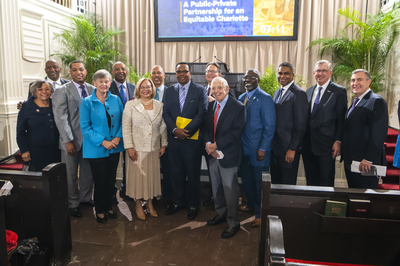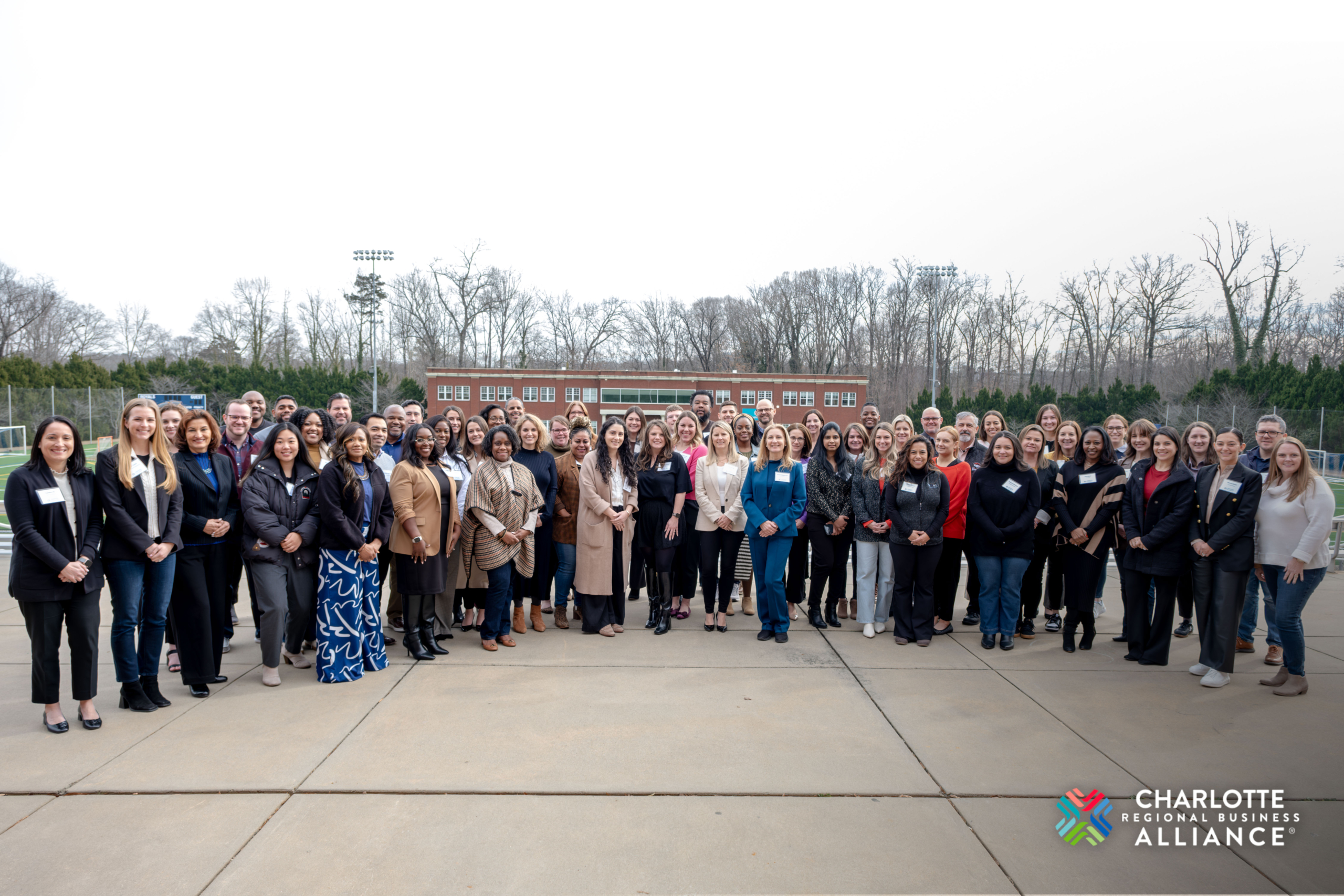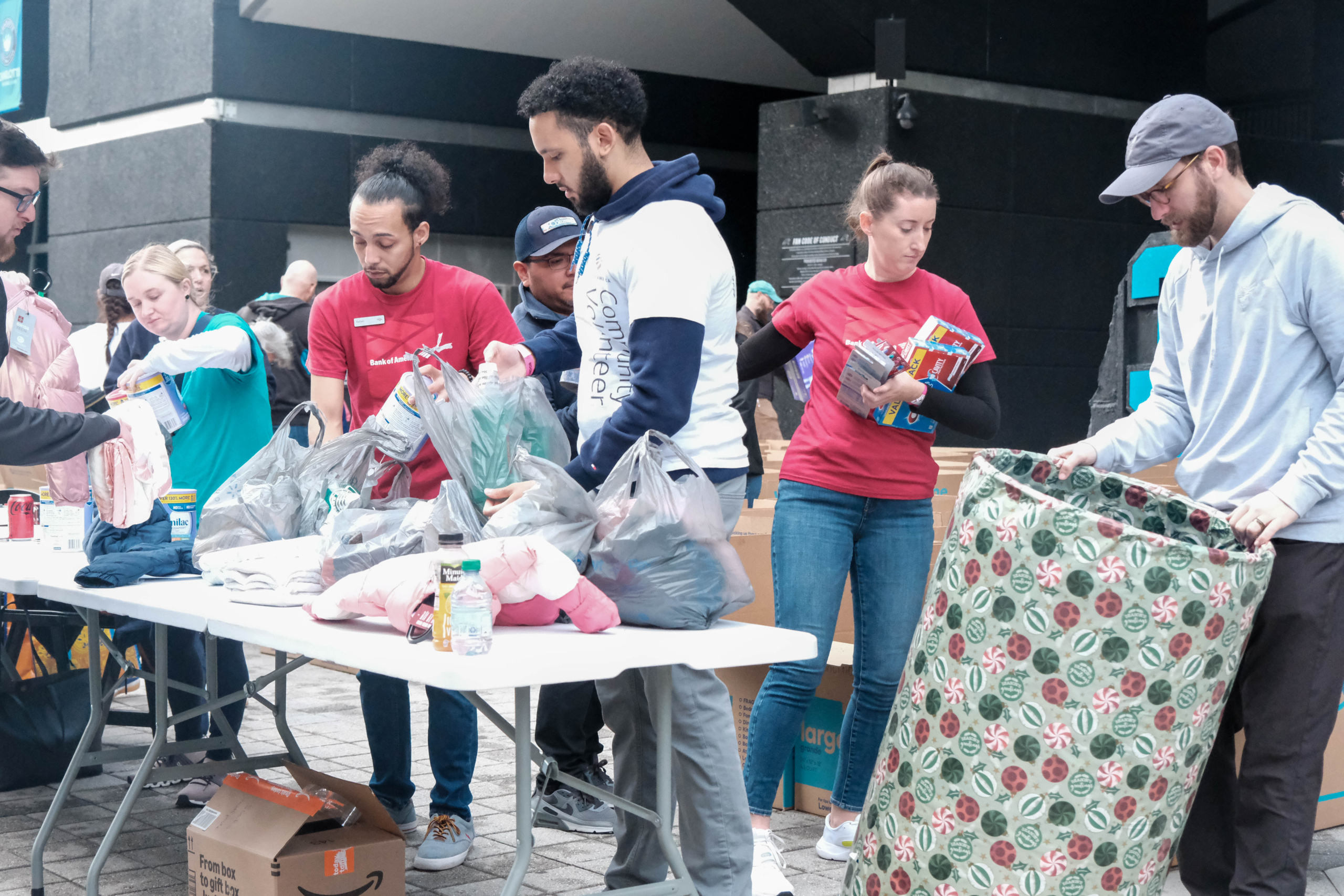As we enter mid-year 2023, we are providing an update on the continued work of the Mayor’s Racial Equity Initiative, including funding and key successes within each of its four focus areas thus far. We are pleased to report that the momentum continues as Key Priority Focus areas are making undeniable progress.
Funding Update
Financial support for the Mayor’s Racial Equity Initiative remains strong. The current total toward the combined public/private sector goal is $245.5 million of the $250 million goal. The private sector portion of the campaign exceeded its goal of $150 million at the end of 2022 and currently stands at $157 million.
Fund Distribution Update & Focus Area Updates
Here are the fund allocations, to date, to each of the focus areas:
- Bridging the Digital Divide: $9,587,000
- Investing in Corridors of Opportunity: $67,500,000
- Transforming JCSU for the Future: $4,994,000
- Catalyzing Employer Commitment: $527,635
Bridging the Digital Divide — Center for Digital Equity at Queens University of Charlotte
With its MREI funding, the Center for Digital Equity has supported the Charlotte Mecklenburg Library’s distribution of more than 20,000 laptops. Funds provided by the CDE allowed the library to host multiple events to distribute the devices.
The Center has received 3,000 resident requests through its digital navigation services for internet support in 2023 — a 400% increase over 2022. Eighty-five percent of these requests were for help obtaining affordable internet. This month, the CDE will produce its public annual report that will highlight progress toward goals across all areas of focus. After the report’s launch, CDE will kick off a series of deep listening sessions with residents most impacted by the digital divide. These sessions will be conducted in partnership with 10 community-based organizations.
Investing in Corridors of Opportunity—City of Charlotte
While $67.5 million has been allocated to the Corridors, much of the dollars are committed to long-term projects. However, significant progress has already been made within several corridors. The Sugar Creek Corridor was strengthened with the Economy/Budget Inn Hotel purchase, which will be used for future affordable for-sale housing.
The playbook—a strategic document that identifies the goals and priorities for each corridor—is complete for the North Tryon/North Graham Corridor, and the launch of the playbook process for the Wilkinson and Freedom Corridors will take place in Q3 2023. All corridors continue to benefit from the ongoing identification and implementation of business district support, infrastructure projects, housing support and workforce development opportunities. This is in addition to the expansion of the three-year SafeBiz CLT pilot program, a partnership with local businesses to install security cameras that feed into the Real Time Crime Center and enable emergency response teams to efficiently respond to security calls.
The Corridors of Opportunity workstream also won two grants: a Living Cities/Main Street America Technical Assistance Grant through a partnership with Truist for development of community-based business organizations, and a Thriving Communities Grant to support neighborhood groups interested in transportation improvements.
Finally, Wells Fargo released an update from its Beyond Open small business grants program, a $20 million commitment to build economic mobility within Charlotte’s Corridors of Opportunity and support diverse small businesses. In Round 1, the grant program awarded $5.9 million across nearly 180 diverse-owned small businesses and a small number of nonprofit organizations. Information on Round 2 of the program is available at beyondopenclt.com, and applications will be open August 1-30. Beyond Open is administered by FFTC Partners for Empowering Communities, a supporting organization of Foundation For The Carolinas.
Transforming Johnson C. Smith University for the Future
Building on last year’s hire of Dr. Nicole McDonald to lead JCSU’s transformation work, the University has onboarded three new academic deans as well as a dean for University College and Student Success. JCSU has also been hard at work on a series of comprehensive recruitment and retention initiatives, including the 400 NOW initiative, which aims to drive a 400-student freshman class for the upcoming academic year. In addition, the University also launched a proactive advising and retention technology platform to act as an early-alert system for at-risk students.
JCSU has also expanded many aspects of its student services by adding additional student success, mental health and enrollment management staff. In addition, the University’s academic deans have initiated the expansion of several curricula, including business, data analytics and computer science as well as pre-professional programs and pathways in the law, medicine and health professions to drive interest among potential students. This month, JCSU will release its transformation annual report highlighting progress across each of five major goals.
Catalyzing Employer Commitment — Charlotte Regional Business Alliance Foundation
To foster the critical work of growing minority-owned small businesses and cultivating Black leaders, three roles were hired and onboarded by The Charlotte Regional Business Alliance Foundation – President, Executive Vice President and Director of Small Business and Entrepreneurship.
Additional work includes procuring a digital resource hub that increases visibility of small business resources that will be implemented late summer; creating a sustainable fundraising strategy; the launch of a DEI-focused employer cohort strategy to ensure equitable and diverse practices; and investing in a localized version of the African American Leadership Academy – a premier leadership academy based in Ohio.
Separately, work has begun on the Workforce Pathways Project, an initiative of the Charlotte Executive Leadership Council. Through the program, employers and training providers will be able to scale up training for jobs in demand. Phase One of the project entailed gaining insight from a select group of employers around hiring needs and the initial build of a talent intelligence system for future workforce planning. Phase Two will explore partnerships with talent providers as well as the launch of a Talent Development Hub.
More to Come
As you can see, there’s an incredible amount of momentum across the MREI’s four Priority Areas – momentum that’s already led to marked shifts in the quest for a more equitable Charlotte. Again, a sincere thank you to our funders for your support – this progress wouldn’t be possible without you.
Photo Courtesy of Jon Strayhorn, Media Arts Collective



